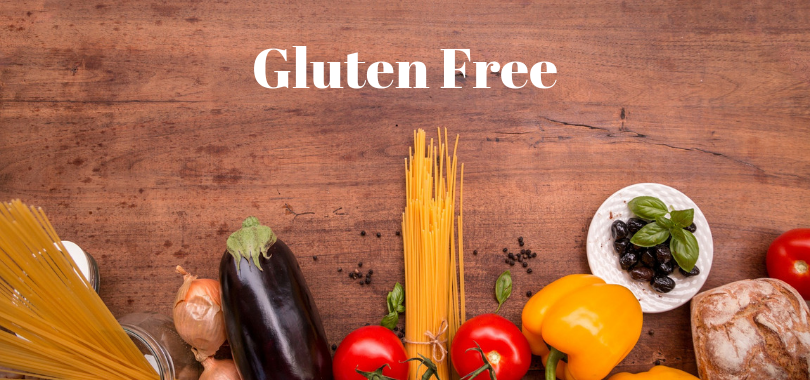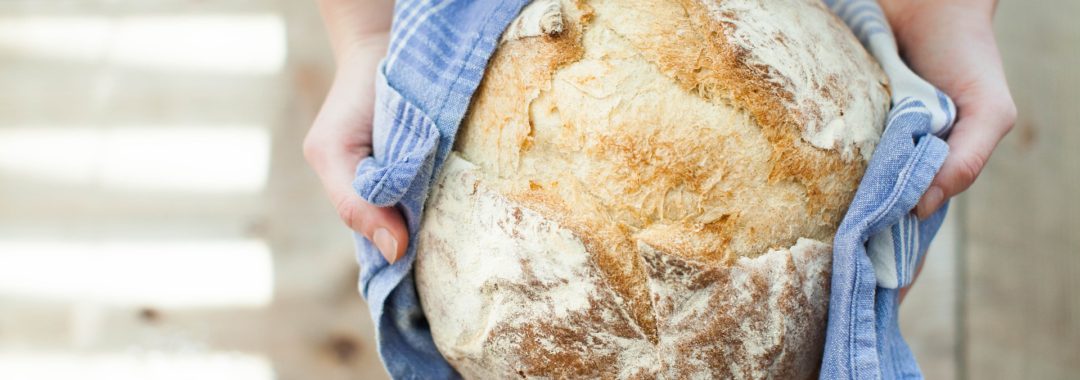Each day we are seeing more and more gluten free products lining the supermarket shelves. Today you can get everything from gluten-free bread, chips, pizza bases, cookies, cakes and other gluten-free products. But are there benefits to cutting out gluten, which is found in most of our grains such and wheat, oats etc?
While many consume gluten in many of the foods and products they are consuming daily and don’t realise the the affects on their health and digestive system. For many it is also a molecule that can wreak some serious havoc when consumed by the wrong person.
While many people look at gluten free products as now being a health food, the fact is that many of the gluten free products people are consuming, have more additives, have less vitamins and minerals, and contain more sugars than the gluten containing products.
Should we just be going grain free instead of trying to use gluten free products?
Are these gluten free products healthier for you?
With marketing focusing more and more on the sales of gluten free products and the high prices that are charged for these products, we really need to look at what are in these products and ask the question…… Are these products really healthier for us?
I would say no, but let me explain why.
What Are Grains and What Do They Do To Our Health?
The word “Grains” does cover many of the common foods we eat now. Grains include wheat, corn, rye, rice, barley, oats, amaranth, buckwheat, millet and sorghum – and many others. These grains are used in so many products these days and part of the reason we are having so many problems with health issues. Bread, pasta, breakfast cereals, cakes, biscuits, pastries, crackers and so many other refined products consumed by many of us are all made with these inflammatory grains.
Let’s not forget that we give grains to cattle and livestock to fatten them up, make them grow faster (due to the hormone response from insulin) and add more fats into the meat for extra flavour.
The grain is the reproductive part of plant; it therefore needs to protect itself to enable future generations. The big difference with fruit; which is designed to be eaten by humans, is that when digested seeds are consumed, they are then spread further to ensure future generations.
As part of this overall protective mechanism, grains contain anti-nutrients, such as phytates, lectins, and other incomplete proteins. This is our major problem with grains. Even when gluten is removed from food products, these other inflammatory agents remain and most people are complete unaware of this and how much they are causing problems with their health and disruption to their digestive systems.
Phytates bind to minerals, vitamins and enzymes preventing them from being absorbed in your body. The Lectins found in grains have a significant impact in the gut, resulting in inflammation and poor absorption of nutrients – as well as insulin & leptin resistance.
The inflammation that these anti-nutrients cause, is now known to be the cause of many modern diseases. But lets not forget that many of our grains that we consume daily are also genetically modified and this in itself is causing major disruption to our health and bodily functions. This alone could be a major factor in the increase of many disease states we are now seeing.
Refined grains are converted to sugar very quickly, which requires insulin to bring down the blood sugar level in the blood. High insulin levels cause the body to store fats and then stop the burning of fats. The high insulin also causes inflammation and insulin resistance – which is the cause of many of our health conditions.
It can be the underlying cause, or exacerbate chronic disease states such as PCOS, Endometriosis, Depression, Diabetes, Heart Disease and many other health issues in this modern day. Consuming such a high refined carbohydrate load with every meal results in unstable, fluctuating blood sugar levels and this then results in hunger that is satisfied by consuming another high carbohydrate meal.
There is also differences between what we term as “Carbs”. “Good carbs” are fresh fruits and vegetables and naturally growing foods in their normal form. “Bad Carbs” are basically anything that is refined – (Breads, cereals, flour products, sugar and most of our packet based foods)
So what is Gluten and why is it so bad for our health?
Gluten is another protein that causes a lot of problems and is found in wheat, barley, rye, spelt, kamut, and oats (other grains have similar, troublesome proteins). Gluten is the only protein in food that’s indigestible and those who suffer from celiac disease experience adverse side effects from consuming and — in severe cases — touching gluten. Gluten can slip through the intestinal lining, causing chronic damage, inflammation, nausea, diarrhea, stomach pain, and vomiting in these sufferers.
There’s also evidence suggesting that people without coeliac can have a sensitivity to gluten, which still causes complications and forces them to live on a strict gluten-free diet. Whilst a lot of people may test negative for the autoimmune disease Coeliac, there is evidence to suggest most people do not handle this incomplete protein well.
Gluten causes gut irritation and inflammation and many people will not even realise that their problems are caused by gluten. Gluten has been linked to many autoimmune and health conditions.
The problem with Gluten Free products is that they are still highly refined and they still cause inflammation, due to high insulin, even with the gluten removed. The inflammatory lectins and leptins are still there too.
Many gluten free products are also full of additives, fillers, binding agents and lots of sugar. Currently, there are no medications, treatments, or cures to successfully treat any form of gluten intolerance. But so long as they don’t consume any foods containing gluten molecules, both coeliac disease and gluten sensitivity sufferers can live a relatively normal and otherwise healthy life.
But the bottom line is that Gluten-free diets don’t necessarily mean you’ve chosen a healthier route, especially when you run the risk of losing out on essential nutrients.
This is why a grain free, not gluten free, is the best option. If you truly want to be gluten free, just don’t eat the wheat grain, or other gluten containing and inflammatory grains in the first place.
The best thing any person could do for their body, as the first step towards better health, would be to cut wheat grain from their diet completely. You will be much healthier for it in the long run. This is part of my healthy lifestyle and healthy eating called the “PACE diet” (Primal Ancestral Clean Eating Diet)
If you do want to know more about how to follow a wheat free/grain free diet, then give my clinic staff a call and find out how I can assist you.
Take care and stay healthy
Regards
Andrew Orr
-No Stone Left Unturned
-Women’s and Men’s Health Advocate

